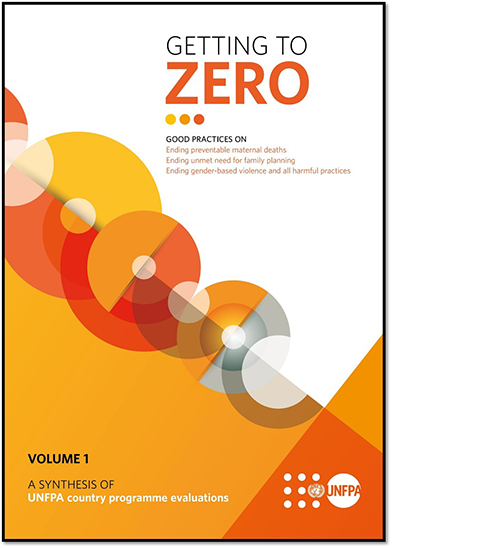Evaluation Office releases validated good practices on achieving universal access to sexual reproductive health and rights, from the synthesis of 57 country programme evaluations at UNFPA. The learnings in the synthesis are particularly timely, as the global community re-energizes commitments at the Nairobi Summit this week to achieve the promises made at the International Conference on Population and Development (ICPD) 25 years ago.
Evaluative evidence facilitates a deeper understanding of effective programmatic approaches, supports optimal use of resources, maximises the organization's value added and allows for a deeper analysis of, and greater attention to the sustainability of its initiatives. To facilitate the use of available evaluative evidence, this synthesis extracts effective programmatic solutions and factors that hinder progress to achieve three transformative results:
Zero preventable maternal deaths
Zero unmet need for family planning
Zero gender-based violence and all harmful practices against women and girls
The synthesis validates that efforts to shift discriminatory social norms, cultural attitudes and beliefs accelerates change across all transformative results. Strategic engagement in diverse partnerships - particularly those at the local level with community leaders, women’s movements and youth networks - was confirmed to increase awareness of sexual and reproductive health and rights, and affect positive behaviour change. In addition, the synthesis reaffirms, as a good practice, the generation and use of quality data to support targeted action and promote accountability across all transformative goals. Lastly, the synthesis captures the importance of systematically undertaking gender analyses to better understand and respond to the multiple and intersecting forms of discrimination (and their impact) in a given context.
Read the Synthesis Report and Brief
Watch a short video on the key highlights of good practices
More information on the Synthesis available here
Follow #GetToZero

